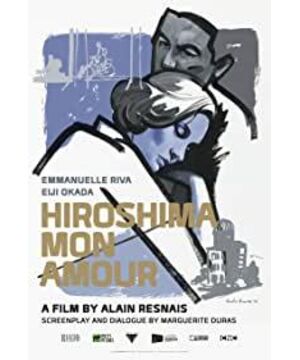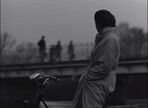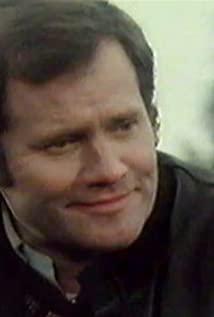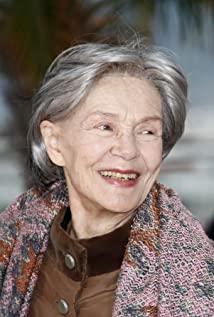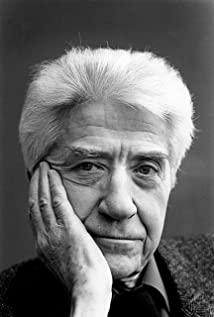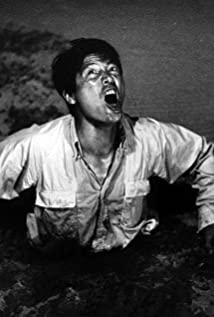First, the Duras-style text structure For anyone who sees "Hiroshima Love" for the first time, they will either be confused by the babble-like lines, or be intoxicated by the interweaving of psychedelic and reality. If you read Duras before watching the movie, you can get into the rhythm and atmosphere of the movie faster. Like "The Lover," Duras may have been influenced by Freud and the liberal school, or she may have written it completely casually. The irrational, almost gibberish confessions point to the depths of human cognition. This is also seen in the movie. It opens with a long male-female dialogue and a horrific brutal montage. Duras-esque lines are full of "broken" and "standing". One second I was still lingering on the bed, the next I would cry, I love you, I hurt you, thank you. Although this kind of lines is broken and messy, it fully expresses the complexity of human emotions, and there are many emotions buried under the surface meaning of a sentence. This is of course the projection of the author's self, the so-called irrational bottom layer, dedicated to love, full of impermanence and chaos, and from this impermanence and chaos, lingering Duras-style romance, and then used by Renai outside the film turned out. Second, Aaron Renai's "Sabi" photography aesthetics This is a story that happened in Japan. Although Lei is French, he keenly grasped an image style that tends to Japanese aesthetics. On the empty shot, Reina gave the scene enough depth, like Ukiyo-e, in which time and space are delayed. There is a sense of loneliness in the depths. Even in the face of talking women and men, their spirits and surroundings seemed to be about to fall asleep. The black and white tone itself has the characteristic of pulling away from emotion and pulling a distance. Therefore, the entire image style exists in a sense of "stillness" of ablation.
Third, the ambiguous politics and pain The most interesting thing in "Hiroshima Love" is the woman's identity setting. She fell in love with a German during the war, and she had a Japanese lover after the war. "My deceased lover is the enemy of France." Even in the face of this Japanese man, the distance, the wartime stance, and the memory of love with the German at that time tore her mind and put her Pushed to the brink of madness. The films of New Wave young directors generally have no political references and are therefore easy to release. Left bankers are often involved in this. Duras and Resnais seem to dig deep from an ambiguous standpoint and spread out the pain of war. It is impossible to say who a person falls in love with. No one other than a lover can say for sure. Because of the war, people are automatically labelled with positions, from the enemy of the army to the confrontation between two parties or even a dog. Labeling causes love tragedies, and labels and positions are impossible not to exist. Duras also had a Chinese lover. The men and women in her writings often belong to each other, and in the process of wearing away labels and positions, she perceives severe pain and fatal defeat. And the important factor in Hiroshima's love - war, is completely dragging people to the abyss of absolute labeling that completely loses individuality. In this way, it may be possible to explain the behavior of the woman in the movie who is crazy. Memory and the future - the myth of man and place You can't deny that the film is mainly about the men and women of the present, but hardly anything about the present. "Hiroshima Love" is a film about memory, oblivion and the future. Women constantly reminisce about German men through Japanese men, from Naville, who never wanted to remember, to finally Hiroshima. (Finger twitches, flashbacks of associative montages). What about Hiroshima? Hiroshima is also a city without present, only memory and future. People can only think of its nuclear bombed body and its existence that calls for the meaning of future peace. The proposition that arises from it is, whether we know a person, a city or a thing based on its yesterday, the present, or the future? It could be both, but once mixed in with the inevitable forgetting of memory and the inevitable unknown of the future, our perception of everything falls back to the agnosticism and nothingness that prevailed after World War II. Therefore, "Hiroshima Love" brought me a kind of myth.
View more about Hiroshima Mon Amour reviews


